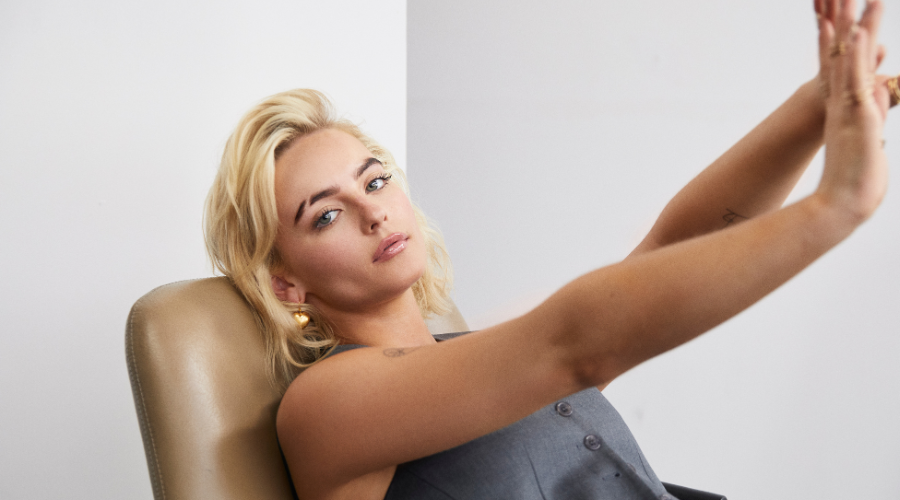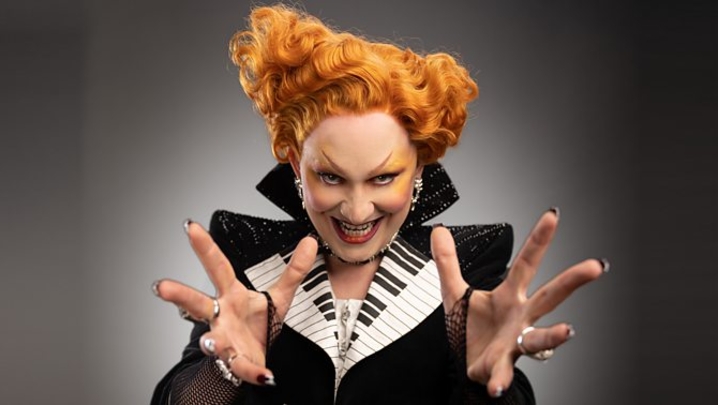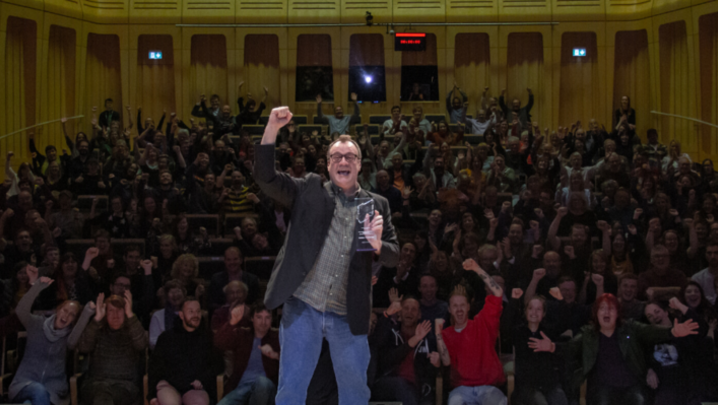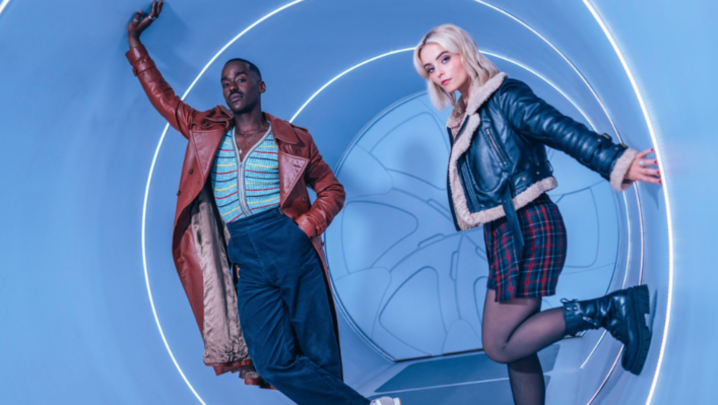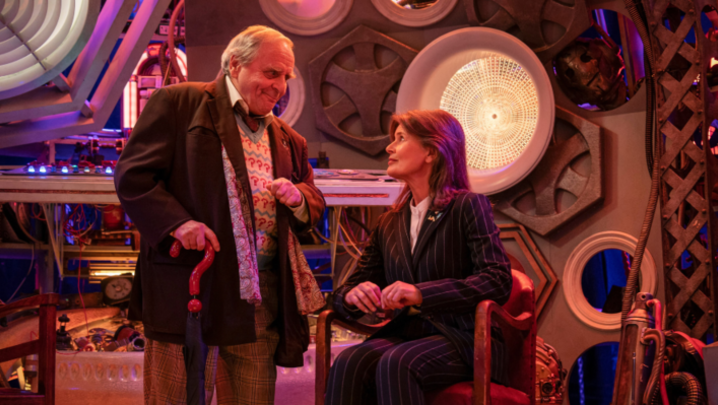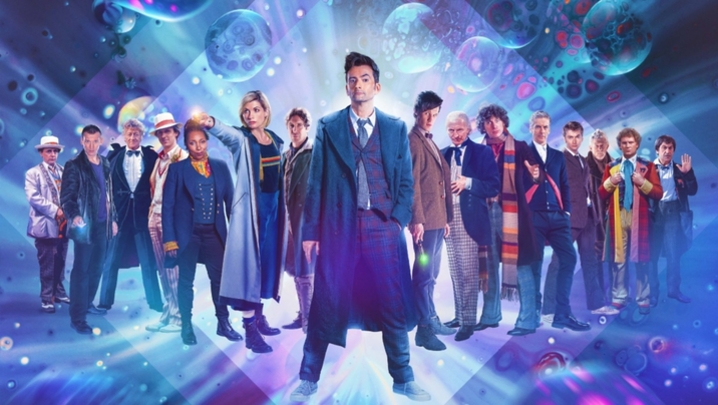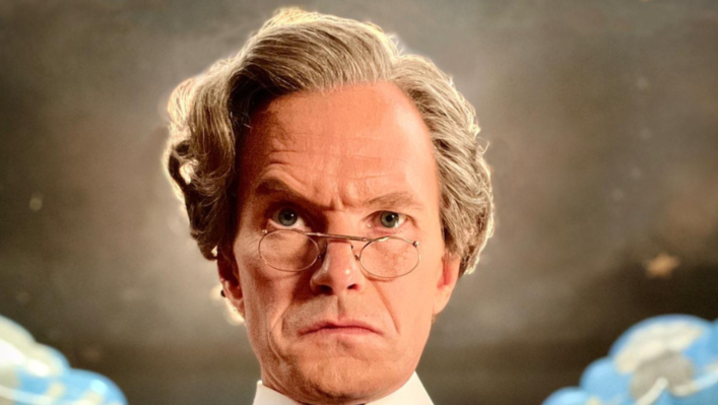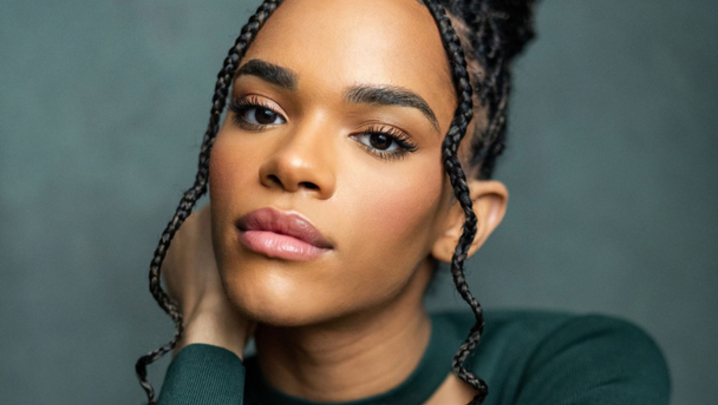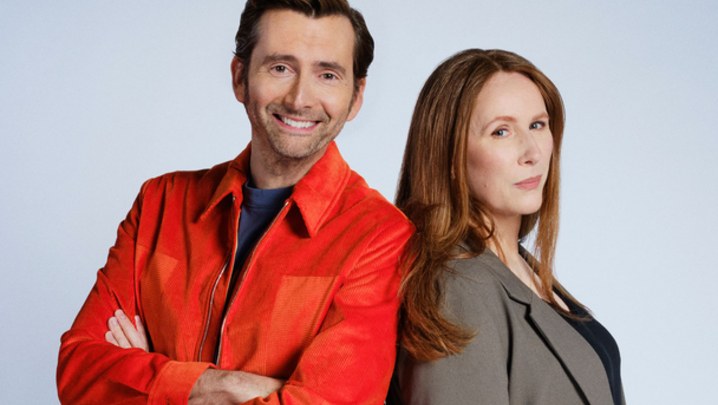Millie Gibson had a late one last night. Up until 4am on a night shoot, the Corrie alumna is still somehow bursting with energy the next day, when we talk over Zoom.
If the actor is sleep deprived, it doesn’t show. The topic quickly turns to Doctor Who, she’s ready for it.
Gibson is joining Ncuti Gatwa (Sex Education) in the TARDIS as companion Ruby Sunday. The Christmas special – quietly revealed by Disney+ to be titled ‘The Church on Ruby Road’ – will be her debut. Has a year of filming that and the new series been enough to take the pressure off joining a programme as big as Doctor Who?
“There’s still so much pressure,” she laughs. “I’m bracing myself, I can’t lie. It’s such an established show.”
It was Coronation Street where the actor made her TV bones. Her character, Kelly Neenan, first strutted into Weatherfield in 2019. Initially intended to have a five-episode arc, she returned in 2020 for just under two-and-a-half years. She wasn’t in for an easy ride: Kelly’s dad was killed, and she herself dealt with a brief spell in prison.
In going from Kelly to Ruby, “character-wise, I remember [Doctor Who showrunner Russell T Davies] and I saying ‘I wanna let everything go’,” Gibson tells me.
“Russell was like ‘Ruby’s not the type of person to roll her eyes at something, but Kelly is’.”
“[Ruby’s] definitely not as hard done by as Kelly,” Gibson laughs.
Sci-fi shows are often eclipsed by the intensity of their fanbases. Since the three 60th anniversary specials began airing, Doctor Who fan groups have been alight with both enthusiasm and in-fighting. They were delighted when Gatwa appeared in the end-screen of videos on the Doctor Who YouTube channel, telling them to subscribe. This enthusiasm is mostly ironic – predominately the subject of memes – but wouldn’t endure without a little sincerity, typical of a fandom that obsesses over every last morsel of the show. For some, this is endearing, and for others, intimidating.
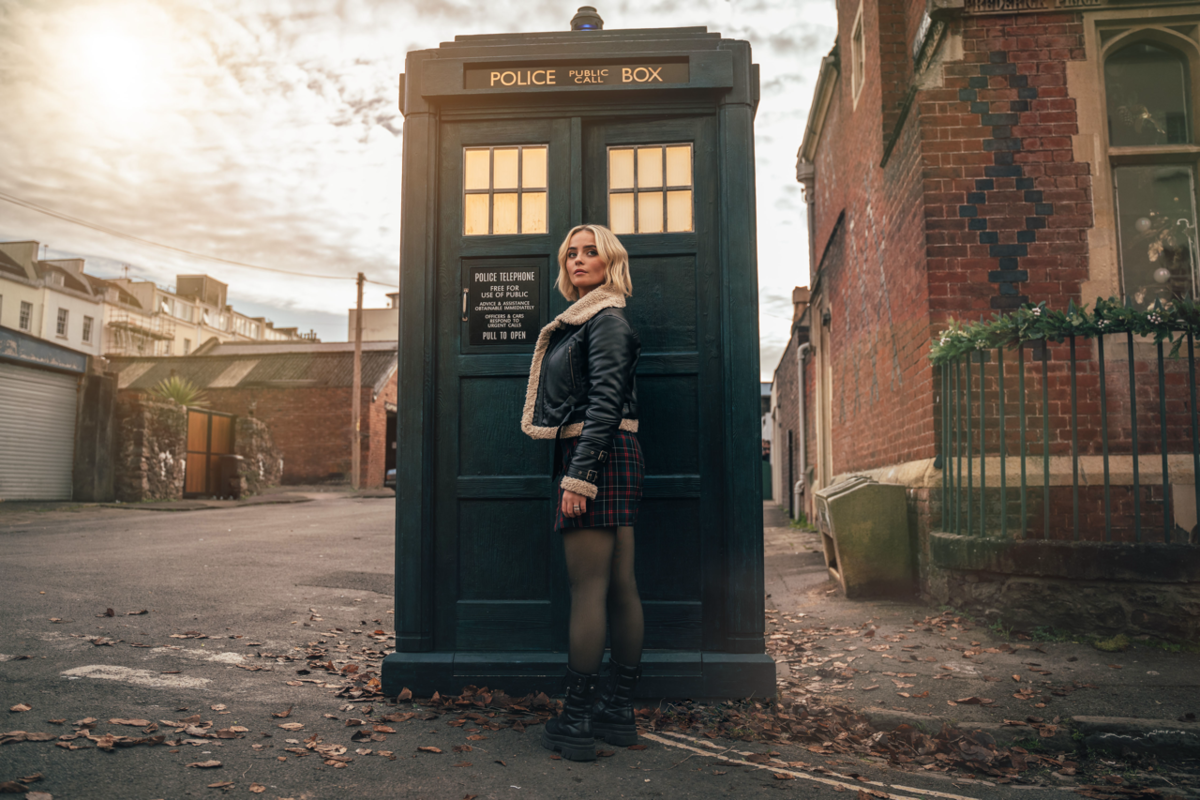
(credit: James Pardon/Bad Wolf/BBC Studios)
Thankfully, Gibson is a fan herself. As an actor, she’s found ‘Whovians’ a welcoming bunch.
“They’re probably the most supportive fan base that I’ve met so far. Anyone that comes into the world, they want to embrace them – they want to know everything about them. They can see no wrong for them.”
She adds: “I just hope they’re happy with my work, and happy with Ruby Sunday.”
Precious little information has been divulged about Ruby. A teaser for the Christmas special reveals she was abandoned on the steps of a church as a baby, but beyond that, details are scant.
Whatever her backstory, Ruby Sunday will represent a key part of the show. As well as asking the questions on the lips of viewers, the companion finds humanity in the Doctor, and by extension, the show. Through the companion’s eyes, remote worlds are more wondrous, villains more nefarious, and even the most bizarre-looking aliens more human.
Taking on this role is personal for Gibson, who fondly recalls watching the show with her dad.
“We watched the Matt Smith era together. That was my Doctor,” she says, before quickly adding with a smile, “Now, it’s Ncuti.”
After getting the audition, she went back over Smith’s episodes to prepare. “I really, really loved his energy, and I always loved [his companion] Amy Pond, her story with him.”
Pond (played by Karen Gillan) was famously known as ‘The Girl Who Waited’. First encountering the Doctor as a child, she is left waiting 12 years for his return. The two eventually wander the galaxy together, until she is zapped back in time, beyond even the Doctor’s reach.
When Gibson got the job, it didn’t take long for the character of Ruby to click. “I found her little idiosyncrasies in the scenes,” she tells me. “She’s very forgiving...loves everyone around her. And [she's] springy.”
“The dialogue really, really helped. It goes a long way,” she continues, explaining that Russell T Davies is “a genius, so it always works if you do it word for word.”
Camerawork also comes into play here. On a soap, you’re used to wide angles, Gibson notes, requiring a different type of acting to dramas. The use of Steadicams on a show like Doctor Who allows for more close-ups, and therefore, subtlety.
“I feel like on a soap, if you’re still, you just look wooden, because you can’t really capture anything, but on Doctor Who, a lot of directors were like ‘just play the stillness. We’re so close: we can see what you’re thinking’.”
“It could be a blink, and I’d be like ‘oh my god, she’s upset’,” Gibson says. “I learned a lot from that.”
This is Russell T Davies’s second rodeo, returning as showrunner after spearheading the show’s revival from 2005 to 2009. Davies has pursued a range of projects in the interregnum – among them Cucumber, Years and Years and RTS award-winning It’s A Sin. Now he’s back at Doctor Who, it’s natural to wonder how he’ll handle the show differently this time around.
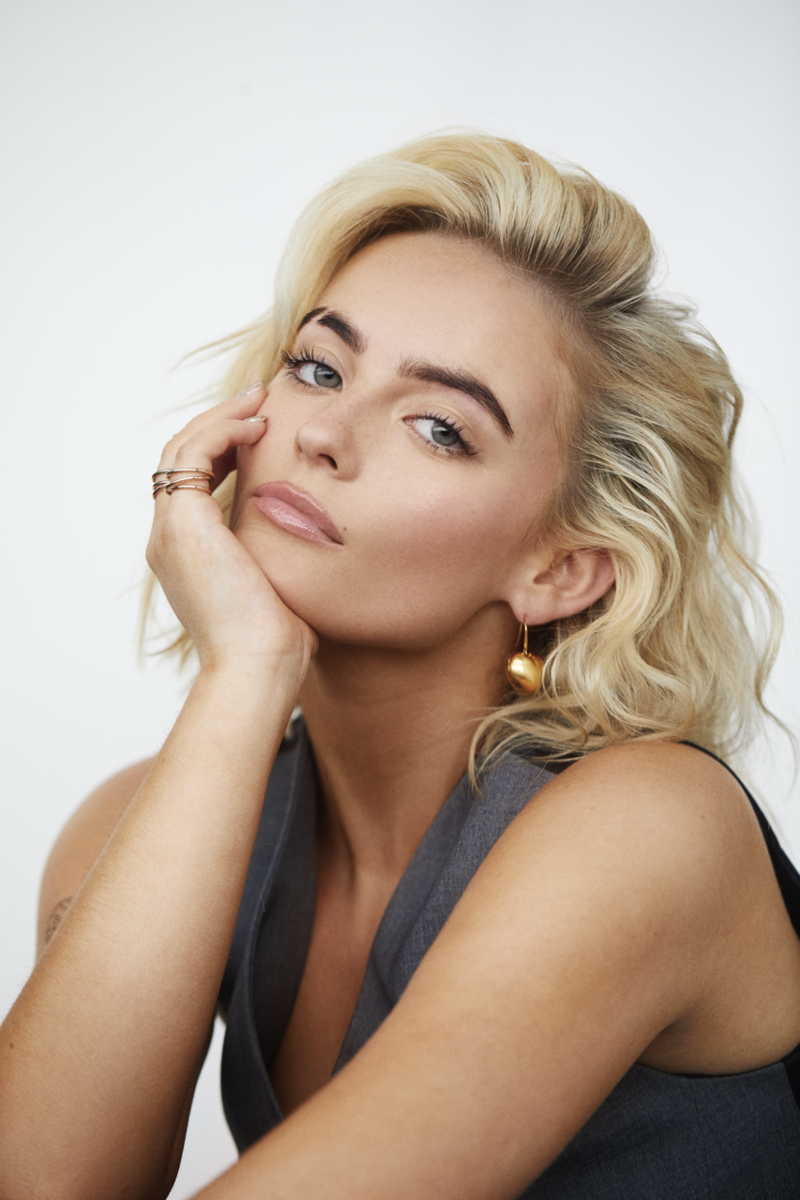
its Christmas special (credit: David Reiss,
with styling by Cher Coulter, makeup by Sara Hill
and hair by Narad Kutowaroo)
“It’s going with the time for sure: I think it’s a lot more coming of age, a lot more colourful, musical,” Gibson tells me. “I think Gen Z will love it.”
The anniversary specials have shown a kinder, more mellow approach to the Doctor. That’s not to say the show has forgotten its bite, or ability to tackle difficult social issues. Yasmin Finney (Heartstopper) appears as Rose, a trans teen who experiences deadnaming.
Of course, the show is still completely daft. Last week, the closely-watched Doctor Who YouTube channel released part of the Christmas special, which features goblins singing about how much they love eating babies.
Talking to Radio Times, Russell T Davies revealed that “the show is taking a sly step towards fantasy, which will annoy people to whom it’s a hard science-fiction show.”
Davies revels in ruffling feathers. In the final 60th anniversary special, the Doctor regenerates by splitting in two, leaving David Tennant (Broadchurch) and Ncuti Gatwa sharing the screen. ‘Bigeneration’ stands in stark contrast to how things are usually done, with one face changing into the other. This break from tradition, it seems, is gleeful.
“It’s a new thing. It’s the 60th,” Davies said in behind-the-scenes show Doctor Who: Unleashed. “Imagine how much fans love new things, and will really rejoice when this happens,” he adds, before slapping his thighs with laughter.
Gibson seems just as capable of mischief. With a twinkle in her eye, she refuses to divulge any more about the new series, content with no more than a “little sprinkle of spoilers”.
With Doctor Who and Coronation Street under her belt, she is well-placed to observe the state of British television as a whole.
“There needs to be a lot more northern working-class dramas,” she says. “You just don’t see a lot of it.”
“On Doctor Who, I was probably the only Mancunian there. I felt so northern: I felt everything I said was a bit rough and ready,” she continues, still smiling. She adds jokingly, “I was with a Welsh crew, so you’re gonna be outnumbered.”
Ruby was “originally supposed to have a neutral, London accent, which is no hint of an accent”, Gibson says. During the audition, she slipped in and out of Mancunian intonation.
“When I got the script, it was like ‘Ruby’s from Manchester’, and I was like ‘phew’. That accent obviously didn’t go well in the audition!”
It’s telling that, even when discussing northern representation, a London accent is considered ‘neutral’. Gibson first started acting at Oldham Theatre Workshop in Greater Manchester, and talks with sadness over the closure of the Oldham Coliseum. Her CV still features credits from both.
Plans are in the works to create an all-new Coliseum, though, and Gibson is confident that the theatre talent from where she grew up is irrepressible.
Ruby will not be the first person from Manchester to travel space and time. Christopher Eccleston (True Detective: Night Country), who played the ninth Doctor – the first in the revival – frequently mentions his Salford upbringing. When his Doctor was asked why an alien could sound northern, he replied simply: “lots of planets have a north!”
“The Mancs are in the TARDIS now!” Gibson laughs.

